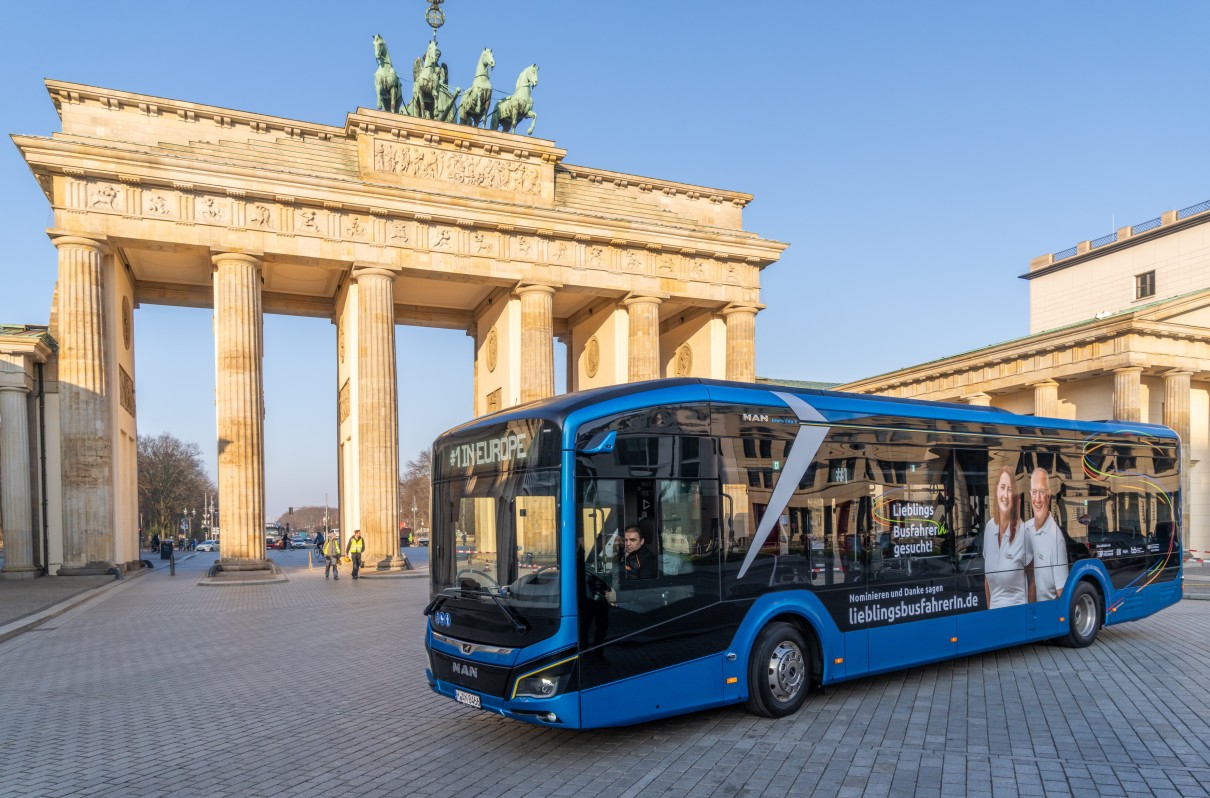Page content
All aboard please!
Germany’s shortage of skill workers is affecting many areas of the economy, and the bus industry is particularly hard-hit. According to the Federal Association of German Bus Operators (bdo) and the Association of German Transport Companies (VDV), there is already a shortage of 20,000 bus drivers in public transport, which will almost treble by 2030. This is because more than half of the drivers are already aged over 50. The planned expansion of public transport and rail replacement services due to extensive refurbishment projects by Deutsche Bahn is creating extra demand for qualified drivers.
Finding a job quicker
The bdo and VDV published a joint position paper in August to secure the next generation of drivers. In it, they call on the Federal Ministry of Transport and Digital Affairs to lower the barriers for entering the profession by simplifying obtaining a bus driver’s licence and the qualifications for becoming a driver. bdo president Karl Hülsmann draws a comparison with neighbouring countries: "While the same training in Austria takes less than 40 hours and costs just under 3,000 to 4,000 euros, for German bus companies the figure is currently anything up to 14,500 euros. We urgently need a lean and efficient bus driver training programme.” In addition to restructured training, VDV vice president Werner Overkamp also considers a better work-life balance in the organisation of work schedules and more part-time offers to be important. The job of driving a bus also deserves better recognition by the public.
Appreciation and recognition
The fact that this is a meaningful profession and that the person behind the wheel of a city bus or coach can make our everyday lives a little better is highlighted by the Favourite Bus Driver competition. Together, the bdo, VDV and Deutsche Bahn (DB) are looking for bus drivers who can make people smile, are particularly helpful or can be genuine heroes, such as Jan Bziak from Bielefeld, one of the winners in 2023. He saved the life of a woman who collapsed on a bus by administering CPR. Passengers can submit stories such as these, or similar ones, via a website form.
For Heinz Kiess, head of Product Marketing Bus at MAN Truck & Bus, renaming the profession alone would give it a big boost. In episode six of the fifth series of BUS2Talk, due to be aired on 1 October, he suggests calling them bus pilots – like aircraft pilots – to give the profession a better image. Subscribe now to the BUS2BUS podcast on one of the popular streaming platforms to make sure you don’t miss an episode, now or in the future.
Recruiting via social Media and AI
24MORE, a company founded in 2019 and based in Hamburg and Perleberg, pursues a different approach. It creates authentic image campaigns in the form of photos and videos for transport companies and bus tour operators. Using an AI algorithm, these are sent to potential applicants on channels such as Facebook and Instagram. “Job adverts in newspapers or posters are outdated, especially if you want to reach young people“, says managing director Philipp Falkenhagen. “We target future bus drivers in the places you will find them, namely online.“
In his opinion, it is very important for the campaigns to emphasise the social and ecological relevance of being a bus driver. A provocative slogan that 24MORE used for a customer to attract more than 30 people who switched careers and are now taking their bus driver’s licence, suggested “making a positive climate impact instead of gluing oneself to the tarmac.“
It is even worth targeting those who want to return to the same job. In Philipp Falkenhagen's experience, some have switched to HGVs because of the pay or working hours, and can now imagine returning if the right offer comes along.
To ensure that newly recruited specialists stay with their company for a long time, 24MORE also advises on how to retain workers. According to Philipp Falkenhagen, ideally company bosses should possess a Class D driving licence and have previously driven a bus. Experience has shown that they are then best able to empathise with the needs of their employees.
AJency pursues a similar concept. Ali El-Chami and Julian Flick, the two founders, are using their campaigns to boost employer brand identity and are relying on the omnipresence of social media.
The startup Deutschkurs-Berufskraftfahrer.de is also taking advantage of digitalisation. It has developed an app that not only teaches job-specific language skills, but also specialist knowledge. Users can learn regardless of time and place. The more than 200 exercises are divided into five lessons and structured interactively. The knowledge acquired not only contributes to greater road safety, but also helps a company retain its employees.





